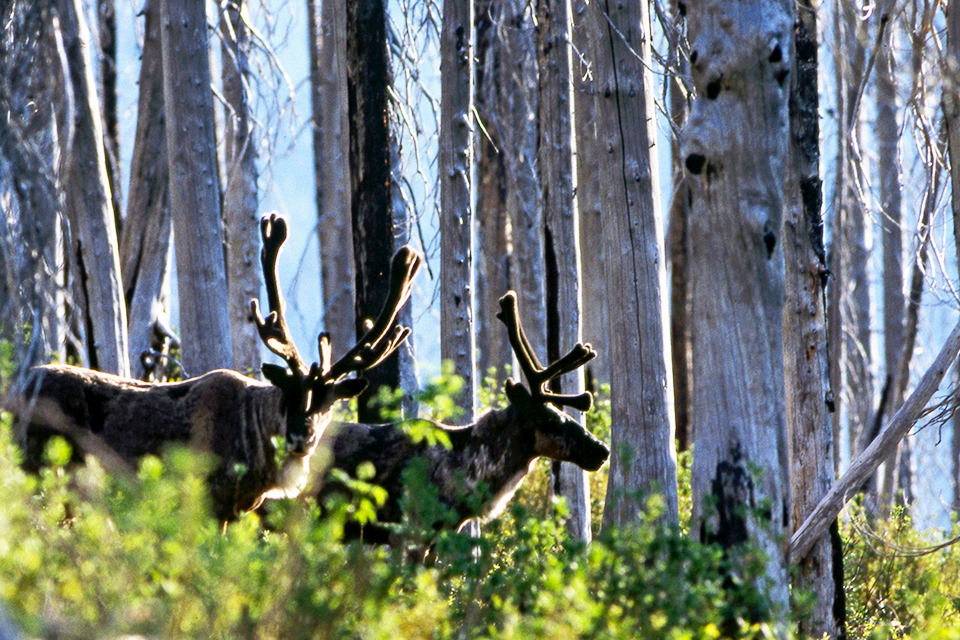Researchers detect flawed statistics in wolf-caribou study
- Anne MacLaurin

A new study overturns the conclusions of an enormously influential paper in 2019 that examined various management actions to slow the decline of endangered mountain caribou herds from BC and Alberta.
UVic Raincoast Research Chair and conservation scientist Chris Darimont collaborated with colleagues from the University of Alberta and UBC Okanagan in re-analysing the data from the 2019 study.
By examining a previously neglected (but fundamental) statistical step, the researchers revealed a strikingly different result from the earlier work. They found that culling wolves and penning caribou had no detectable effect on caribou populations.
Research garners media attention
The new study garnered significant coverage, including in The Guardian and a Canadian Press story which appeared in the front sections of both The Toronto Star and The Globe and Mail.
In addition to the national press story, media turned to Darimont for comment in an article published in the front sections of the Vancouver Sun and The Province, as well as a story in The Atlantic and for local coverage by CFAX Radio and the Times Colonist (which ran the CP story in its newsprint edition).
Scientific error has profound implications for wildlife
Both studies looked at outcomes across 18 caribou herds, six of which were subject to wolf control. Others were subject to alternative treatments, like penning of pregnant female caribou. Six were “controls” subject to no management treatment.
According to Darimont, the implications of the previous scientific errors are profound.
A focus on wolf control is a free pass to aggressively destroy habitat.
—UVic Raincoast Research Chair Chris Darimont, conservation scientist and co-author on new study
He points out that shortly after the 2019 study (and citing its conclusions) was announced, the BC government invested in an expanded wolf program. Over the winter of 2019-20, 463 wolves were killed.
“If government managers are interested in using the best available evidence to inform policy, these findings should trigger an immediate re-evaluation of expensive, socially contentious – and ultimately ineffective – policy,” says Darimont.
“Worse than tax-funded programs to kill wolves in error is the free pass that such an ill-advised diversion granted to industry, which continued to aggressively destroy habitat.”
Irreplaceable habitat vanishing at astonishing rates
Large-scale forestry as well as oil and gas activities remove old growth forest that provides critical habitat and food for endangered caribou, particularly those in the southern part of the population’s remaining ranges.
“Unless governments move quickly to protect the remaining and irreplaceable habitat, it will continue to vanish at astonishing rates, setting up increasingly desperate conditions from which caribou will never recover,” says Darimont.
The freely-available open-access paper was published today in the international peer-reviewed journal, Biodiversity and Conservation, by scientists from U of A, UBCO and the Raincoast Conservation Foundation.

